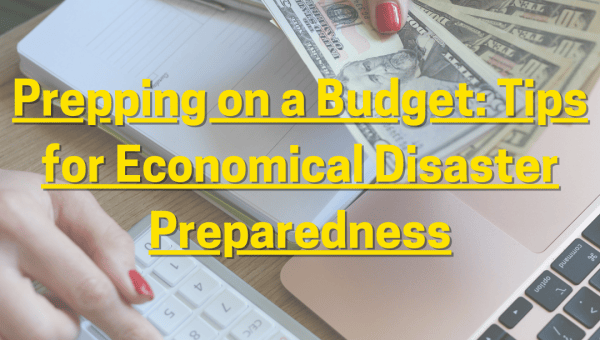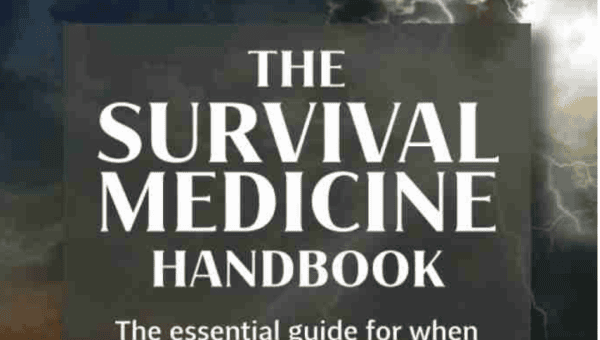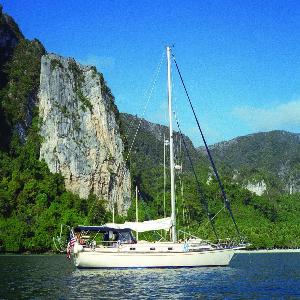In today’s uncertain world, being prepared is crucial, especially when it comes to disasters and emergencies. Whether you're a seasoned prepper or just beginning your journey toward disaster readiness, the cost of supplies can sometimes be prohibitive. However, with careful planning and strategic budgeting, you can significantly reduce expenses while still ensuring that you have the necessary resources for survival. This article provides practical tips for prepping on a budget, helping you to create a robust emergency kit without breaking the bank.
Assess Your Needs
The first step in any preparedness plan is assessing your specific needs. What are the essentials? For most people, this includes water, food, medical supplies, and basic shelter items. Start by listing these essential items based on your family size and health requirements. This will help you focus your efforts and avoid unnecessary expenditures.
- Water: Look for large bottles or jugs that come at a reduced price per liter.
- Canned Goods: Dried beans, pasta, rice, tuna, and other non-perishable foods are great choices. Always check the expiration date to ensure you're not buying expired items.
- Dried Fruits and Nuts: These can be added to your diet as a healthy snack or used in recipes.
Buy in Bulk
One of the most effective ways to save money while prepping is by buying essential items in bulk. Many stores offer discounts when purchasing larger quantities, and over time, these savings can add up significantly. Additionally, buying in bulk allows you to reduce packaging waste, which is environmentally friendly and cost-effective.
Grow Your Own Food
If you have the space and time, growing your own food is one of the best ways to reduce costs while increasing self-sufficiency. Start by selecting easy-to-grow vegetables that are nutritious and require minimal resources.
- Tomatoes: These require full sun but produce large yields.
- Carrots: They grow well in containers and provide high nutritional value.
- Leafy Greens (Spinach, Lettuce): These plants grow quickly and can be harvested multiple times per season.
Utilize Free Resources
There are numerous free resources available that can help you save money on your prepping journey:
- Community Gardens: Check if there's an existing community garden in your area. Many local governments sponsor these as a way to encourage sustainable living.
- Food Banks: Many communities have food banks where you can obtain non-perishable items for free.
- Homesteading Forums and Websites: These platforms often offer tips on how to reduce expenses while building up your survival skills.
DIY Projects
Making use of DIY projects is another great way to stretch your budget further. There are countless tutorials available online for crafting everything from water storage tanks to solar-powered lights. Not only does this help you save money, but it also gives you the satisfaction of creating something yourself.
- Water Storage Tanks: You can convert empty plastic jugs into makeshift containers by drilling holes and attaching spigots.
- Emergency Lighting: Make use of inexpensive LED bulbs that last longer than traditional incandescent ones. You can even build your own emergency flashlights out of simple components.
Practice Smart Shopping
Even when you're buying supplies, there are ways to cut costs:
- Shop Seasonally: Buy fruits and vegetables at their peak season when they’re cheaper and fresher.
- Compare Prices: Always check for deals or coupons before making a purchase.
- Use Multiple Suppliers: Sometimes local suppliers will offer better prices than large retailers.
Educate Yourself
Knowledge is one of the greatest tools you can have as a prepper. Attend workshops, read books, and participate in online forums to learn about various aspects of preparedness. Many resources are free or low-cost, so take advantage of any opportunity available. Understanding how different systems work-whether it's water filtration methods or building shelters-can also help you make informed decisions that could save money.
Build Long-Term Relationships
Building relationships within your community can be incredibly beneficial for prepping purposes. By joining groups focused on survival skills, sharing resources becomes much easier and more efficient. Whether it's trading seeds with neighbors during a gardening exchange or pooling together to buy large quantities of food at once, working together reduces overall costs.

















